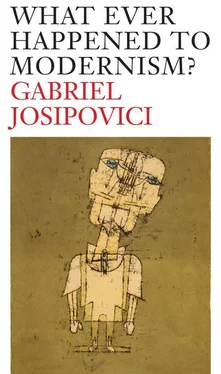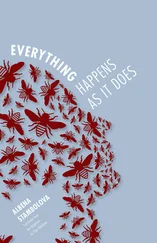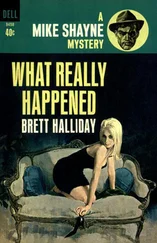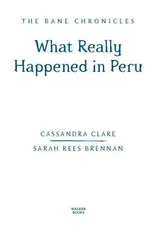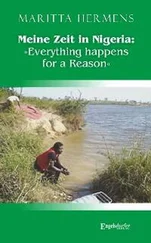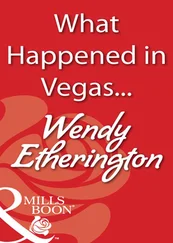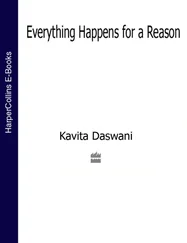and genius (i)
and individual freedom (i), (ii), (iii)
see also despair
Melville, Herman (i)
Bartleby (i), (ii), (iii), (iv)
Moby Dick (i), (ii)
Mepham, John (i), (ii)
Merleau-Ponty, Maurice (i), (ii), (iii)
‘Le Doute de Cézanne’ (i), (ii)
Middle Ages, loss in transition to Modern era (i), (ii)
Miller, Karl (i)
Milton, John, Lycidas (i)
Mondrian, Piet (i), (ii), (iii), (iv), (v)
Monteverdi, Claudio (i)
Orfeo (i)
Morrison, Blake (i)
Morrison, Toni (i)
multiple voices see polyphony
Murdoch, Iris (i), (ii), (iii)
Under the Net (i), (ii), (iii)
music
abstraction and break with tradition (i)
Adorno on Stravinsky (i), (ii), (iii)
and individualism (i), (ii)
lament and loss (i), (ii)
opera (i), (ii), (iii)
Stravinsky and Greek tragedy (i)
Nabokov, Vladimir (i)
Naipaul, V.S. (i)
‘naïve’ authors (i)
popularity of work (i), (ii), (iii)
Napoleon Bonaparte (i), (ii)
narrative voice and possibility (i)
nature
and experience in Wordsworth (i), (ii), (iii)
see also landscape
necessity as limit on possibility (i), (ii)
negativity and life, Kierkegaard on (i)
Némirovsky, Irène, Suite Française (i), (ii)
neo-Platonism (i), (ii)
Neoclassicism and Picasso (i), (ii)
newspaper fragments in Picasso's work (i)
Nietzsche, Friedrich Wilhelm (i), (ii)
Nono, Luigi (i)
Prometeo (i)
‘nostalgia’ for pre-Modern world (i)
nouveau roman (i), (ii)
see also Duras; Pinget; Robbe-Grillet; Simon
novel (i), (ii)
abstraction in (i)
arbitrariness in classic novel (i), (ii), (iii), (iv), (v), (vi)
and artificiality of fiction (i), (ii), (iii), (iv)
and authority (i), (ii), (iii), (iv)
avoidance of anecdotal (i), (ii), (iii), (iv)
denial of genre (i), (ii), (iii), (iv)
English novel and false
Modernism (i), (ii), (iii), (iv)
fragments and grasping the inexpressible (i)
‘naïve’ writers (i)
narrative challenge (i), (ii), (iii)
narrative voice and possibility (i)
nouveau roman (i), (ii)
passé simple tense (i)
polyphony in (i), (ii), (iii)
solitary creators (i), (ii), (iii)
and story-telling (i), (ii)
see also authors; comedic narratives
Oedipus (i), (ii), (iii), (iv), (v), (vi)
oikos (house) in Greek tragedy (i), (ii)
opera (i), (ii)
Stravinsky's Oedipus Rex (i), (ii)
oral tradition and novel (i), (ii)
paints and ready-made (i), (ii)
Panofsky, Erwin (i)
Paris, Haussmann's redesign (i)
parody
inevitability of (i), (ii)
see also pastiche and Modernism
passé simple tense in novel (i), (ii)
Pasternak, Boris (i)
pastiche and Modernism (i), (ii)
Paul, St (i), (ii)
Perec, Georges (i), (ii), (iii)
periodisation of Modernism (i), (ii)
photography (i), (ii)
photomechanical conception of art (i), (ii), (iii)
reproduction of Fountain (i)
Picabia, Francis (i), (ii)
Picasso, Pablo (i), (ii), (iii), (iv), (v)
aversion to abstraction (i), (ii), (iii), (iv)
Cadaqués period (i)
and classical Greece (i), (ii)
and Delacroix's Women of Algiers (i)
Krauss on collages (i), (ii), (iii), (iv), (v)
‘Mother and Child’ sculpture (i)
pasticheur label (i), (ii)
Violin (i), (ii) , (iii), (iv)
Waugh's antipathy to Modern art (i), (ii)
Pinget, Robert (i)
Passacaille (i), (ii), (iii), (iv)
Pinter, Harold (i)
Pissarro, Camille, Two Young Peasant Women (i)
Plato (i), (ii)
plot
and authority of novel (i)
and Greek tragedy (i), (ii), (iii)
novel and arbitrariness in (i), (ii)
Poe, Edgar Allan (i), (ii), (iii)
Arthur Gordon Pym (i)
poetry
break with genre (i), (ii), (iii)
elliptical account of death (i)
fragments in Eliot (i)
loss in transition to Modern era (i)
Mallarmé and new poetry (i)
and personal experience (i)
see also Wordsworth
Pollock, Jackson (i)
polyphony (multiple voices) (i), (ii), (iii)
Pope, Alexander (i)
popular writing: ‘naïve’ authors (i), (ii), (iii)
positivist historical accounts (i), (ii)
possibility
and actuality (i), (ii)
and anxiety of individual freedom (i), (ii), (iii)
and narrative voice (i)
post-Modern critical response (i), (ii)
Pound, Ezra (i)
Cantos (i)
Powell, Anthony (i), (ii)
At Lady Molly's (i), (ii), (iii)
Protestantism (i), (ii), (iii), (iv), (v)
Proust, Marcel (i), (ii), (iii), (iv), (v), (vi), (vii)
A La Recherche (i), (ii), (iii), (iv), (v), (vi)
Pullman, Philip (i)
Purgatory and doctrine (i), (ii)
purism and prescriptive Modernism (i), (ii), (iii)
Queneau, Raymond, Zazie dans le métro (i)
Rabelais, François (i), (ii), (iii), (iv), (v), (vi), (vii), (viii)
Gargantua (i), (ii), (iii)
Pantagruel (i), (ii)
Raine, Craig (i), (ii)
Read, Herbert (i), (ii)
readymade (i), (ii)
realism (i)
and Don Quixote (i)
and Greek tragedy (i)
and the novel (i), (ii), (iii), (iv), (v), (vi)
‘reality-effect’ and novel (i)
récit (i), (ii), (iii), (iv)
Reformation
Marburg disputation (i)
and transition to Modern era (i), (ii), (iii), (iv)
religion
and anxiety of freedom (i)
see also Protestantism; Reformation
Rembrandt van Rijn, Self-Portrait (i), (ii) , (iii)
Renaissance (i)
Ricardou, Jean (i)
Robbe-Grillet, Alain (i), (ii), (iii), (iv), (v), (vi)
Dans Le Labyrinthe (i), (ii)
Les Gommes (i), (ii)
La Jalousie (i), (ii), (iii)
Le Voyeur (i), (ii), (iii)
Robert, Marthe (i), (ii), (iii)
Rodchenko, Aleksandr (i)
Romanticism
anxiety of individual freedom (i), (ii)
landscape and self in Friedrich and Wordsworth (i), (ii)
loss and transition to Modern era (i), (ii)
and realist view of novel (i), (ii), (iii)
and translation of Greek tragedy (i)
rootlessness and Modernism (i)
Rosenblum, Robert (i)
Roth, Philip (i), (ii), (iii), (iv), (v)
Roussel, Raymond (i)
Rückenfigur in Friedrich's work (i), (ii)
Salinger, J.D., Catcher in the Rye (i), (ii)
Sarraute, Nathalie (i)
Sartre, Jean-Paul (i), (ii), (iii)
La Nausée (i)
Schiller, Friedrich von (i)
‘On Naïve and Sentimental Poetry’ (i), (ii)
Schoenberg, Arnold (i), (ii), (iii)
self
and despair (i)
and Greek tragedy (i), (ii)
and place in world (i), (ii), (iii)
see also subjectivity
Sewell, Elizabeth (i)
Shakespeare, William (i)
Hamlet (i), (ii), (iii)
Macbeth (i)
shock value as explanation for Modernism (i)
Shostakovitch, Dmitri (i)
signs and Modernism (i), (ii), (iii), (iv)
Simon, Claude (i), (ii), (iii), (iv), (v)
L'Herbe (i)
La Corde raide (i), (ii), (iii)
La Route des Flandres (i), (ii)
sin, nature of (i), (ii)
social order and possibility in Napoleonic era (i)
sonata form (i)
Sophocles (i), (ii), (iii), (iv), (v)
Oedipus at Colonus (i), (ii), (iii)
Spark, Muriel (i), (ii)
Читать дальше
